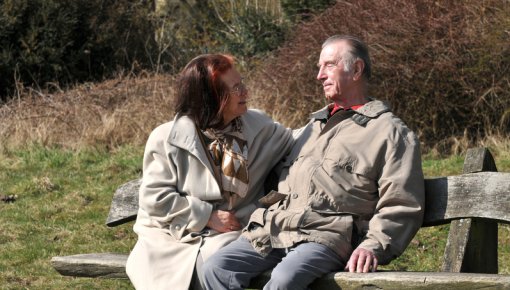Allida S, Cox KL, Hsieh CF et al. Pharmacological, psychological, and non-invasive brain stimulation interventions for treating depression after stroke. Cochrane Database Syst Rev 2020; (1): CD003437.
Ayerbe L, Ayis S, Wolfe CD et al. Natural history, predictors and outcomes of depression after stroke: systematic review and meta-analysis. Br J Psychiatry 2013; 202(1): 14-21.
Crocker TF, Brown L, Lam N et al. Information provision for stroke survivors and their carers. Cochrane Database Syst Rev 2021; (11): CD001919.
Deutsche Gesellschaft für Allgemeinmedizin und Familienmedizin (DEGAM). Schlaganfall (S3-Leitlinie). AWMF-Registernr.: 053-011. 2020.
Eng JJ, Reime B. Exercise for depressive symptoms in stroke patients: a systematic review and meta-analysis. Clin Rehabil 2014; 28(8): 731-739.
Legg LA, Lewis SR, Schofield-Robinson OJ et al. Occupational therapy for adults with problems in activities of daily living after stroke. Cochrane Database Syst Rev 2017; (7): CD003585.
Minshall C, Pascoe MC, Thompson DR et al. Psychosocial interventions for stroke survivors, carers and survivor-carer dyads: a systematic review and meta-analysis. Top Stroke Rehabil 2019; 26(7): 554-564.
Robinson RG, Jorge RE. Post-Stroke Depression: A Review. Am J Psychiatry 2016; 173(3): 221-231.
Saunders DH, Sanderson M, Hayes S et al. Physical fitness training for stroke patients. Cochrane Database Syst Rev 2016; (3): CD003316.
Xu XM, Zou DZ, Shen LY et al. Efficacy and feasibility of antidepressant treatment in patients with post-stroke depression. Medicine (Baltimore) 2016; 95(45): e5349.
IQWiG health information is written with the aim of helping people understand the advantages and disadvantages of the main treatment options and health care services.
Because IQWiG is a German institute, some of the information provided here is specific to the German health care system. The suitability of any of the described options in an individual case can be determined by talking to a doctor. informedhealth.org can provide support for talks with doctors and other medical professionals, but cannot replace them. We do not offer individual consultations.
Our information is based on the results of good-quality studies. It is written by a team of health care professionals, scientists and editors, and reviewed by external experts. You can find a detailed description of how our health information is produced and updated in our methods.


